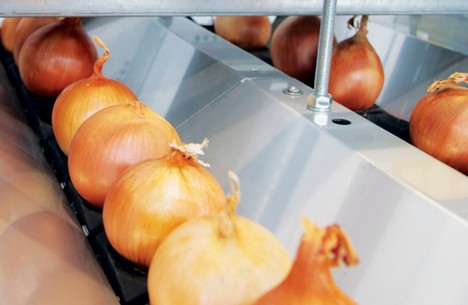Spanish onions are facing a difficult market this year due to low demand. In the context of a worldwide pandemic for which there is still no end in sight, structural problems in the sector in terms of production and marketing planning have made things worse.

"While the acreage seemed to have been slightly reduced this year in Spain, yields have been quite high, above normal," says Alfonso Tarazona, president of the Association of Onion Harvesters and Exporters (ACEC). "This has coincided with a really low market demand due to several factors, especially the collateral effects of the current health crisis. The current weakness of the tourism sector and therefore of the hospitality industry is taking quite a noticeable toll on the consumption capacity. In the past few months, market sales have been slow and stocks have been accumulating."
Although articles published in some Spanish generalist media blamed onion imports from third countries at this time as the cause of the price collapse, Alfonso Tarazona claims that this is misinformation that can affect the sector in all parts of the value chain.
"Every year we work with imported onions during the months of March and April, namely with some types of onion with a specific quality that are not delivered by Spanish producers. Talking about 'mass imports' at this time of the year makes no sense, and it is important to remember that these are always scheduled imports, with higher costs and greater logistical risks. Spreading this kind of inaccurate information harms producers and has an impact on sales, since consumers may stop buying onions as a form of protest."
According to the president of the ACEC, the current situation of Spanish onions reflects that "there is still a lack of planning and professionalism in the sector." The fact is that "onions with little commercial potential continue to be planted, simply because of tradition. As a sector, we should analyze what customers demand at each moment of the campaign in order to avoid the piling up of the production in chambers, as has been the case in other years."
"It doesn't look like things are going to improve in the short term, given the current situation caused by the pandemic, with such reduced consumption. Also, everything points to the fact that other European producing countries, such as the Netherlands, are expecting good onion harvests," says Alfonso Tarazona.
For more information:
ACEC
C/ Hernán Cortés nº 4
46004, Valencia, Spain
T: +34 963517409
acec@acec.info
